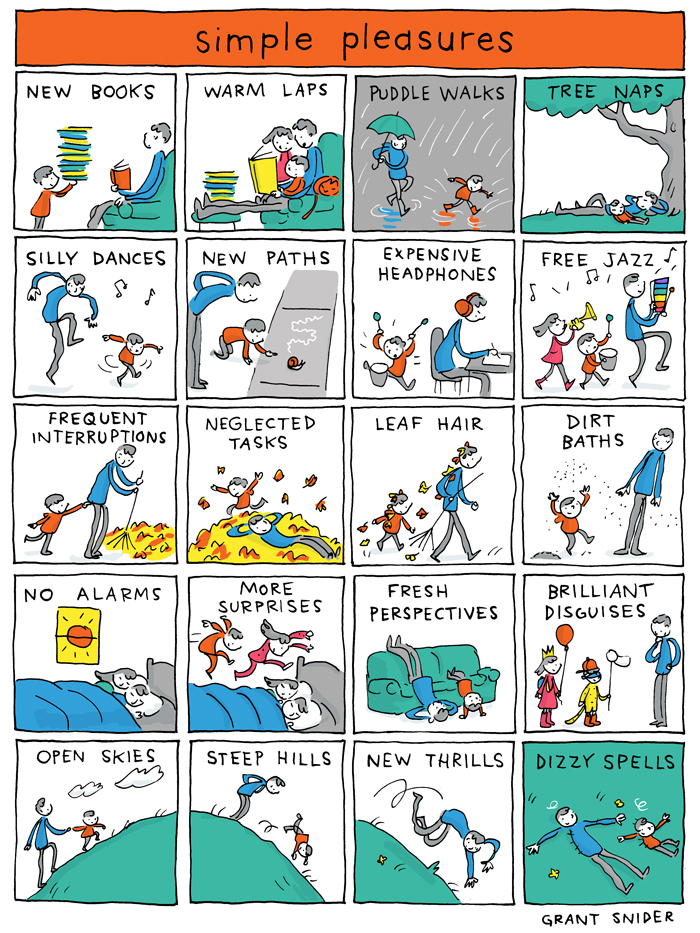Coronavirus
Tiny Moments of Pleasure Really Can Help Us Through This Stressful Time
If I told you that last night I built a blanket fort in the living room, crawled inside with my cat, a glass of wine and my just-arrived copy of the New Yorker, would you think less of me?
After all, we’re in the midst of a global coronavirus pandemic. Borders are closing, people are sick, dying, losing their jobs, and locked in isolation. And there was I, playing – as though I didn’t have a care in the world.
Meanwhile, you might be reading this holed up at home, screaming with fury at those bloody hoarders. Or perhaps you’re on a train valiantly trying to keep 1.5 metres away from the next person, shrinking back as they cough and splutter.
Wherever you are, whatever you’re doing, whatever you think about the pandemic, the economy, or your compatriots, a tiny part of you knows you could do with a bit of pleasure right now.
The effects of sustained stress
When we’re first exposed to something stressful, like a deadly new disease, our body reacts with a cascade of small changes such as releasing adrenaline and other chemicals, and activating brain regions related to fear and anger.
In many cases those changes make it more likely we’ll meet the challenges we face.
But if the stressful conditions continue, and especially if we feel powerless to fix the situation, the consequences of the stress response increase.
Our risk of chronic diseases increases, immune function can be compromised, and we become more vulnerable to mental health problems.
We can feel depleted, disconnected, anxious and depressed. We can become fixated on negative thoughts and on looking for signs of threat. Sound familiar?
The good news is the effects of stress on the brain are reversible.
Pleasure in times of stress
It may seem too simple to be true but shifting our attention toward the small, everyday pleasures in our lives can offset the consequences of stress or negative events.
US researchers reported last year that experiencing pleasurable emotions, for example having interesting things to do, serves as a buffer between chronic stress and depression. So, among people with sustained, high levels of stress, those who reported more pleasurable moments were likely to experience less severe depressive symptoms.
Pleasurable experiences might even be of most benefit in times of stress.
We experience pleasure in a myriad ways. Perhaps one of the most potent of pleasures, and one that springs most easily to mind, is a lover’s caress.
But to maximise the pleasure in every day, we should look more widely, to a multitude of sources.
If we’re too busy reading those alarming headlines to notice the beauty of the sun setting outside our window though, it’s a missed opportunity for a moment of delight.
When I recently asked people on Twitter to share the things bringing them delight in these challenging times, I received hundreds of replies within a couple of hours.
Each one was a small vignette conveying a personal moment of simple pleasure. Gardens and dogs and children and nature featured strongly, and many people reflected on the added pleasure of recalling such moments.
Indeed, recollection and anticipation – along with relishing pleasure in the moment – are effective ways to maximise the value of positive experiences or emotions. We call it “savouring”.
Luckily, we can get better at savouring with practice. And the more we savour, the less stressed we feel. And that’s why I’m here.
If we increase the pleasure we experience, it can lift our psychological well-being. In turn, higher well-being is linked to better immune function.
It’s about boosting our personal capacity
My message is not to avoid the facts or pretend nothing has changed. It’s to intentionally build in moments of reprieve and restoration. It’s to turn your attention to what is still good and rich and fun – to really focus on those things.
This is how we can harness the protective power of small pleasures, for the sake of delight itself and to build grit and resilience.
So, there may never have been a better time to build a blanket fort, or to bring out a game of Twister, or to lie on your back in the garden making fantasy creatures out of passing clouds. Find excuses to giggle.
Making pleasure happen
In difficult, frightening times, no one is immune to worry; it’s a natural response. But what we can do is take steps to protect ourselves, as much as possible, from its physical and psychological ill-effects.
The challenge is to make this happen, to tear yourself away from analysing the COVID-19 curve and intentionally, systematically engineer more small delights into your day.
Do you like the sunshine? Then know when the sun falls on your balcony, in your garden or in the street near your place. Take a cup of tea or coffee with you and soak up the warmth.
Pets? Run, play, be silly with them. Eating a tomato? Plant the seeds and watch something grow, from nothing, because of you. Sing. Dance. Delight someone with an act of kindness.
Plan your opportunities for pleasure. Put them in your diary. Set your alarm for them. Commit to share them with others. Photograph them. Post them on social media or share them directly with friends and family. Anticipate them gleefully and reflect on them with delight. This is our time to be here. Savour.![]()
Desirée Kozlowski, Lecturer, Psychology, Southern Cross University
This article is republished from The Conversation under a Creative Commons license. Read the original article.
Recent Articles
-
Psychological Impact of Catastrophic Injury & Recovery
Feb 17, 26 02:26 AM
Explore the psychological impact of catastrophic injury, including trauma, identity shifts, resilience, and long-term mental health recovery. -
Psychology Articles by David Webb
Feb 10, 26 06:31 AM
Discover psychology articles by David Webb, featuring science-based insights into why we think, feel, and behave the way we do. -
Music and Memory: How Songs Shape Identity, Emotion, and Life Stories
Feb 10, 26 06:25 AM
How music and memory intertwine to preserve identity, evoke emotion, and anchor life stories. A psychological look at playlists, nostalgia, and the brain.





